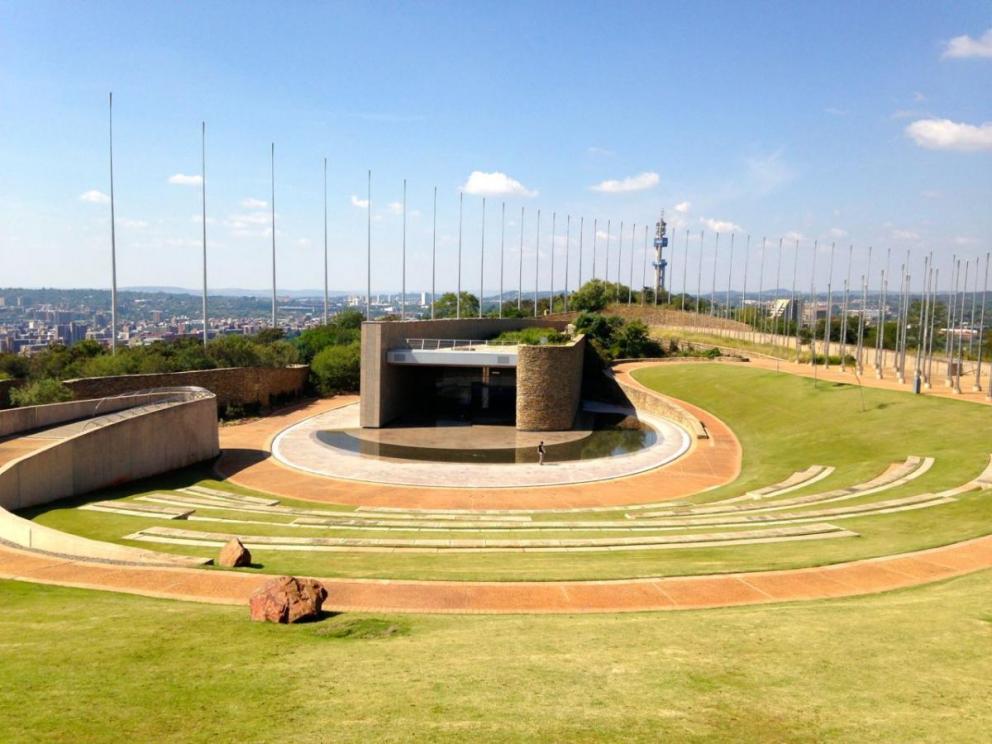
The museums of Tshwane have collaborated to celebrate International Museum Day, which is annually celebrated on 18 May.
Every year since 1977, ICOM has organised International Museum Day (IMD), which represents a unique moment for the international museum community. On this day, participating museums plan creative events and activities related to the International Museum Day theme, engage with their public and highlight the importance of the role of museums as institutions that serve society and its development. International Museum Day 2021 will focus on “The Future of Museums: Recover and Reimagine”. This year, museums, their professionals and communities will create, imagine and share new practices of (co-) creation of value, new business models for cultural institutions and innovative solutions for the social, economic and environmental challenges of the present.
International Museum Day activities
The museums in Tshwane plan a weeklong programme from 17 -23 May 2021 that will also see most museums open for free to the public during those days. This will give an opportunity for all South Africans to take their families to experience what museums offer, be it entertainment or education.
1) Temporary exhibition at Saulsville Library from 18 May 2021 from 10:00 to 16:00
The various museums will display their most interesting collections at Saulsville Library on 18 May 2021. The community and students are invited to be amused by different exhibitions representing very interesting historic, cultural, military and natural collections..
2) Introducing a new concept: Indigenous language and heritage corners in libraries, 18 May 2021
The indigenous language and heritage corner project in libraries is aimed at preserving, documenting and promoting indigenous languages and heritage of the local communities in Tshwane. The Arts, Culture and Library Services Division encouraged the 60 libraries in Tshwane to reserve a space that will exclusively display and shelf the indigenous knowledge and heritage of their respective communities. At the dedicated spaces, the community will access material such as indigenous language books and other related literature. The corners will also house written heritage and historic material that focus on the aspects of the local community, which will include academic research, manuscripts, articles, books, impact assessments, development plans, documentaries, photographs, etc.
The information will identify very well with the local community and assist them to best understand their localities and one another. The City will request key local community stakeholders and institutions to assist in collecting different material to resource these corners. Members of the community will be requested to donate old photographs of their locality, willing members of the community will be interviewed, and the national archives, and scientific research and academic institutions will be requested to share their research work conducted and written on the aspects of the communities, such as economy, health, social, politics, geographic, development, tourism, statistics, etc.
The material will enhance the sense of identity and encourage social cohesion among the local community members. Information will not only be easily accessible to the local community but will also encourage them to write and discuss the written documents for the advancement of their heritage.
3) Webinar on “The Future of Museums: Recover and Reimagine” on 28 May 2021 at 11:00
With the theme The Future of Museums: Recover and Reimagine, International Museum Day 2021 invites museums, their professionals and communities to create, imagine and share new practices to (co-)create value, new business models for cultural institutions and innovative solutions for the social, economic and environmental challenges of the present.
Museums are struggling to recover from the pandemic and to create a valuable resource for people of all ages. The webinar presentation will comprise speakers from different backgrounds and the focus will be on the following four main pillars.
- The unparalleled challenges and impact of the COVID-19 pandemic on museums: Annabell Lebethe: CEO Ditsong Museums of South Africa
- How museums can recover and reimagine: Ms Anneliese Mehnert (Anza) Assistant Curator / Researcher, Museum of Anthropology and Archaeology, Department of Anthropology and Archaeology
- What can we do differently? International perspective: Nicholas Clarke: Delft University of Technology in Netherlands
- Museums and galleries as drivers of cultural tourism post COVID-19 pandemic: Nico Rowan, Chairman – Tshwane Tourism Association and Managing Director – Manhattan Hotel Pretoria
The following museums and institutions are participating in International Museum Week:
Museums:
- The City of Tshwane Museums including the Pretoria Art Museum, Melrose House and Fort Klapperkop
- DITSONG: Museums of South Africa including the National Museum of Natural History, National Museum of Cultural History, National Museum of Military History, Kruger Museum, Pioneer Museum, Sammy Marks Museum, Tswaing Meteorite Crater and Willem Prinsloo Agricultural Museum.
- Voortrekker: Monument and Nature Reserve
- Freedom Park
- Geoscience Museum
- South African Police Services Museum
- South African Post Office Museum
- South African Air Force Museum
- McHardy Museum
- University of Pretoria Museums
- Javett Art Centre: University of Pretoria
- Veterinary Historical Society of South Africa
- South African Mint
- Unisa Anthropology and Palaeontology Museum
Enquiries:
Lemohang Zincume, lemohang@ditsong.org.za, 076 418 8324.
Disclaimer: Any views expressed by individuals and organisations are their own and do not in any way represent the views of The Heritage Portal.
